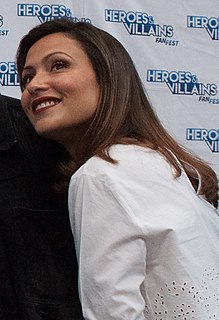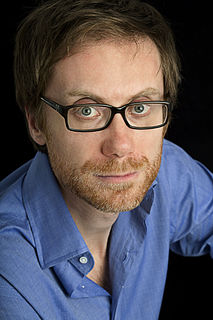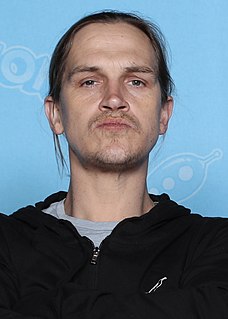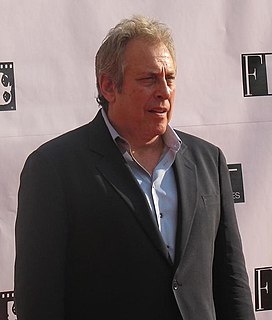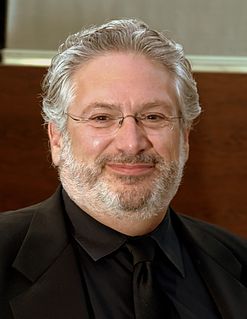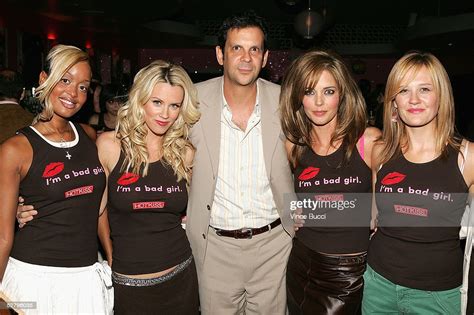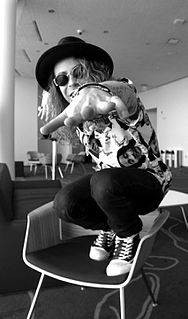A Quote by Daniel Craig
hen Baillie [Walsh, writer and director] wrote the movie for me I wasn't doing what I'm doing today, so when we actually came to make the movie it seemed silly to change it. But who knows? That's the way things go. What was interesting for me - and what was always interesting in the script - was that you've got someone who appears to have everything, or at least has the opportunity to have everything, and he's f**ked it up, or lost it.
Related Quotes
I grew up doing theater when I was very young - always enjoyed it. Studied it in college, got my degree in it, and never really had the guts to do it professionally. But one summer, a friend of mine was with an extras agency and asked me if I wanted to be an extra with him in a movie, and I was, like, "Sure." At lunch, the writer came up to me and asked me to audition for a role. I got it, and it sort of snowballed from there.
When I get hired as an actor as opposed to a writer, one of things that's exciting for me is doing stuff I wouldn't normally do myself. So whether it's a kid's movie or a voice in animation or in this case - where I just get to be silly, it's a different kind of comedy for me. As a performer, it's a different pleasure than when you're writing or directing. As a performer, you're just in the hands of the director and you go with whatever they want to do.
I created my own concept art and went in and did a 90-minute presentation that cost me a lot of money.And, the great thing is though, when I got the job, they had to buy all of it from me, because one of the set pieces in the middle of the movie was the scene I wrote, and they needed to own everything because a lot of it ended up being the movie we made, so I got all my money back. I was committed. I was going to outspend every competing director.
The script [of Regression] wasn't the draw for me. It was largely Alejandro [Amenabar] and his way of talking. To hear him talking about the script was way more interesting than the script. He wrote it, and so, English is his second language. It's an interesting thing. I've had that before. I was directed by Alfonso Cuarón before, too. It's always interesting when you're being directed by somebody like that. So much of directing is about communication, and finding the right words, and what it means, and how to convey certain emotions and ideas.
I came from advertising. For me it's about protecting the director's vision. That's always the goal. There's keeping things on budget and on time and dealing with selling the movie so that to me is a focus. But also it's about serving the script. We are genre filmmakers, those are the films we love to make, so my perspective is a little different.
I may not be the number one movie star, or my films might not be doing too good. I am grateful for what life has offered me. I have got a great family, parents are together, have a great sister, I get to holiday. All these things make me grateful towards life, for everything. I always say - have an attitude of gratitude.
I think I'm an extremely conscientious producer and now equally as a director and it gives me the opportunity to look at the entire movie and really allow the movie to be the creative vision of the actors, the writer and myself, because I'm in charge of it from a producer and a director point of view.
I feel like at the end of your days, the last thing that's going to happen is that you're going to watch the movie of your life. It's very important to make sure that you love your movie and that you want to watch your movie, so I try to always make sure that I'm doing something fun and interesting.
I'm an optimist. I hope if a movie's good that it will be a success, but that's not always true, just because of popular taste or any other reasons. When something doesn't do better than it deserves to in your mind, it's pretty transparent - you usually know why. Is that a comfort? Yes, because it's logical. Does it make you happy? No, because if you think a movie is beautiful or interesting, you want to share it. Sometimes you make very interesting movies that aren't meant for everybody. But this is a capitalist society, so everything conspires to put value on whether it sells or not.
One of the things that's interesting to me is I find things like caffeine and stunts actually relax me. When they're putting a bit of gel on my arm and lighting me on fire, or when I'm about to go into a high-speed car chase or rev a motorcycle up pretty fast, I find everything else around me slows down.
It was Die Hard in my father's workshop. And so when that opportunity came up, the possibility of doing it, it's more the teenager in me who says that, 'I have to, of course I'm going to.' So that's the fun of reinventing, or just getting involved in things that really, actually loved as a kid growing up wanting to grow up to be a director.



